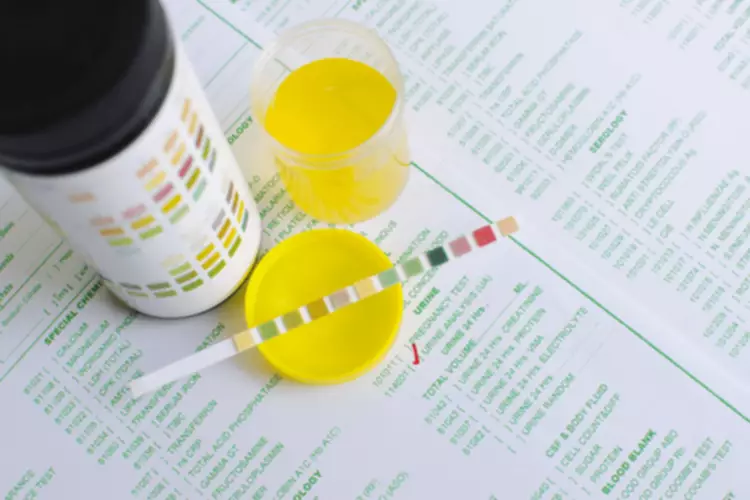Alcohol Elimination Time Online Calculator
At Renaissance Recovery our goal is to provide evidence-based treatment to as many individuals as possible. Give us a call today to verify your insurance coverage or to learn more about paying for addiction treatment. Needless to say, impaired perception and coordination makes driving dangerous. If you’re going to drink, be sure to have a designated driver take you home safely.
- Researchers also believe that this compound contributes to some of the damaging psychological effects of heavy alcohol use.
- It is typically used in legal settings to check for impaired driving or underage drinking, employment to test for on-the-job alcohol consumption, or to test for alcohol poisoning.
- Your use of this website constitutes acceptance of the Terms of Use, Supplemental Terms, Privacy Policy, Cookie Policy, and Consumer Health Data Notice.
- That said, drinking more water will improve the function of the kidneys and liver, allowing them to rid the body of alcohol more effectively.
- This guide details the length of time it takes to sober up and shows you how to engage with treatment for alcohol abuse in any form.
How Alcohol Compares to Other Illegal Drugs
Enter your weight in kilograms and the amount of alcohol consumed in grams. Click “Calculate” to get the estimated time until you’re sober. There is no way to flush the alcohol out of the Sober Houses Rules That You Should Follow system faster, as the body will metabolize it at a natural pace. That said, drinking more water will improve the function of the kidneys and liver, allowing them to rid the body of alcohol more effectively. The time at which the test is done will affect its accuracy.
How the Body Processes Alcohol
Genetics, alcohol tolerance, and the amount of alcohol consumed all affect the time it takes for alcohol to be processed in the body. Whether you drink beer, wine, or liquor, alcohol quickly enters your bloodstream and reaches your brain within minutes of your first drink. As alcohol reaches your brain, the relaxed, euphoric feeling sets in, and you may have fewer inhibitions.
- Drinking alcohol is a socially accepted activity in manycommunities.
- The anxiety-sobriety paradox, that unsettling wave of anxiousness after quitting, is a temporary guest.
- Habitual drinkers may not feel the effects of alcohol at this level, but they will still be mildly alcohol-impaired in the same way as someone who complies with moderate drinking guidelines 2.
- In this section, we’ll talk about how alcohol impacts health, how to moderate drinking, drunk driving statistics and more.
- You might also hear questions about sobriety timeframes when someone struggles with addiction and is looking for treatment options.
The Good Life
When you’ve been drinking too much for an extended period, you may experience withdrawal symptoms when you quit. Alcohol withdrawal symptoms typically begin within eight hours after your last drink and peak within 24 to 72 hours but can continue for weeks. Once you stop drinking, your body continues to metabolize alcohol. You may feel drowsy and fall asleep faster than usual, but alcohol can disrupt your sleep throughout the night, and you may have frequent awakenings, even if you don’t remember them. You may have heard about quick-fix methods that help you sober up faster than average.
Over 72% of people who feel that they’ve dealt with a substance abuse problem at some point consider themselves to be in recovery or to have recovered. South Shores Recovery provides world-class alcohol addiction treatment covered by many forms of insurance. Please call South Shores Detox and Recovery to discover how we can help you or your loved one heal. “Since alcohol can affect the absorption and utilization of vitamins and nutrients, abstinence from alcohol allows your body to start to use these more effectively again,” he explained. It is important to note that tolerance, or someone’s ability to appear to remain sober even when drinking, isn’t the same thing as BAC.
Common Medical Abbreviations & Terms
BAC (blood alcohol concentration) is a universally accepted metric for measuring the amount of alcohol in the bloodstream. Make a commitment not https://yourhealthmagazine.net/article/addiction/sober-houses-rules-that-you-should-follow/ to have drinks during social activities. In time, you’ll get better at refusing and you won’t feel the need to drink like before. Refusing to take a breath test may result in a license revocation and/or blood test.
However, excessive drinking or drinking over long periods of time can disrupt sleep patterns, often causing broken sleep or discomfort through the night. Abstaining from alcohol doesn’t need to be a trend reserved only for a specific month. If you are looking to take a break from drinking at any point, there are numerous mental and physical benefits in doing so. For those with alcohol use disorder, sobering up involves more than just sleeping off a hangover.
How to sober up faster
- If you try to but can’t seem to stop drinking or consistently struggle with abusing alcohol, it may be time to consider a new plan.
- It’s a good start if you need help moderating your drinking habits.
- Your sobriety date is a personal and significant milestone marking the day you decided to stop using drugs or alcohol.
- While you can try flush out alcohol with water, it will not encourage the body to metabolize alcohol faster.
- In time, you’ll get better at refusing and you won’t feel the need to drink like before.
Knowing how long it takes to sober up can also be interpreted as “how long to recover from the effects of one’s drinking? While in recovery, the detox phase can help someone through the biological part of sobering up. Every person is unique so the way alcohol affects the body will be different.
The remaining alcohol can take up to five half-lives (i.e. 20–25 hours) to be cleared completely. If you choose to drink, do so mindfully—limit how many drinks you have, avoid getting drunk, and talk to a healthcare provider if you suspect you have an unhealthy relationship with alcohol. The liver eliminates alcohol at a rate of 10 to 30 mg/dL per hour. So, if your BAC is 0.04, it will take between an hour and 20 minutes and four hours to sober up. For a BAC of 0.08, it will take between two hours and 40 minutes and eight hours to sober up.
It boosts your mental health.
For example, if conducted between six and 12 hours after a person’s last drink, the tests are deemed highly accurate, but the results could be skewed outside of that window. The tests conducted to determine BAC can detect blood alcohol levels for up to 12 hours after a person consumes alcohol. When acetaldehyde is present in the body, even if it’s just for a short time, it can cause damage to cells and tissues.
How alcohol affects you, how drunk you get, and how long it lasts depends on several factors. We provide medical detox and residential treatment for alcohol and drug addiction at the United Recovery Project. Over time, alcohol addiction causes a shift in the brain’s motivation to drink.













